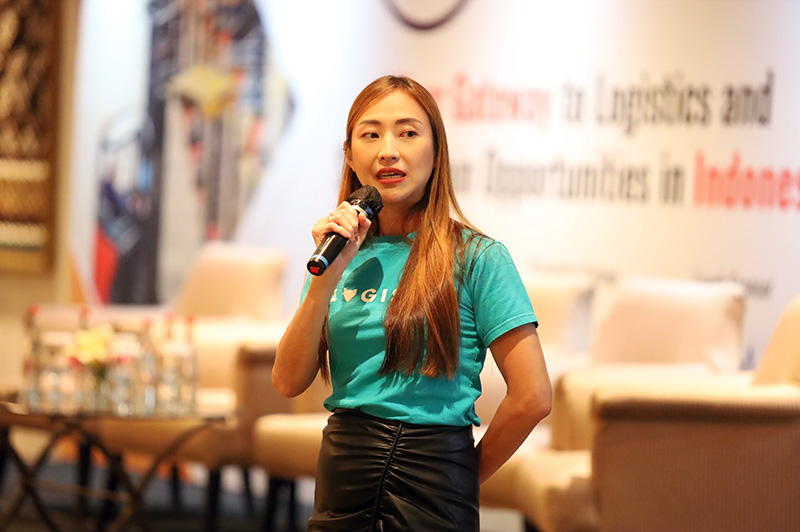Key Takeaways from Top Logistics Conferences in Indonesia

Indonesia’s logistics sector is undergoing a dramatic transformation, fueled by digital innovation, policy reform, and regional trade integration. One of the best ways for businesses to stay updated is by attending top logistics conferences across the archipelago. These events bring together policymakers, logistics providers, technology innovators, port authorities, and supply chain leaders to shape the future of logistics in Indonesia and the ASEAN region.
In this blog, we highlight the key takeaways from recent logistics conferences in Indonesia, their implications for businesses, and why staying informed through such platforms can offer strategic advantages.
📍 Major Logistics Conferences in Indonesia (2024–2025)
Some of the top logistics conferences that have shaped discussions in Indonesia recently include:
-
Indonesia Transport, Supply Chain and Logistics (ITSCL)
-
Asia Warehousing Show – Indonesia Edition
-
Indonesia Maritime Expo (IME)
-
Supply Chain Innovation Indonesia
-
National Logistics Ecosystem (NLE) Forums by the Ministry of Trade
Each of these events has highlighted emerging technologies, national infrastructure goals, sustainability priorities, and the strategic role of Indonesia as a logistics gateway in Southeast Asia.
👉 Related: National Logistics Ecosystem: What It Means for Shippers
🔑 Key Takeaway 1: Digital Transformation Is No Longer Optional
Across all major events, digitalization was a recurring theme. Indonesian logistics firms are increasingly adopting:
-
Warehouse Management Systems (WMS)
-
Transportation Management Systems (TMS)
-
Real-time tracking and visibility platforms
-
AI-based route optimization
-
Blockchain for cargo integrity and customs compliance
Government officials, especially from the Coordinating Ministry of Economic Affairs, reiterated the importance of the National Logistics Ecosystem (NLE) platform, which aims to streamline cargo flow through digital integration between ports, customs, and private logistics players.
👉 Learn more: Future-Proofing Indonesia’s Logistics Workforce: Skills in Demand
🔑 Key Takeaway 2: Indonesia’s Role as a Regional Logistics Hub Is Growing
Experts at the Indonesia Maritime Expo discussed the government’s ambition to position Indonesia as a regional maritime hub, taking advantage of its strategic position between the Indian and Pacific Oceans.
Key initiatives mentioned include:
-
The development of Patimban Port and Kuala Tanjung Port as alternative gateways to Tanjung Priok.
-
Expansion of inland container depots (ICDs) to reduce congestion at major ports.
-
Integration of ASEAN Smart Logistics Network and the China-ASEAN connectivity corridors.
This shift will open up new opportunities for freight forwarders, customs brokers, and exporters to move goods more efficiently across ASEAN and beyond.
👉 Related: Indonesia’s Evolving Logistics Infrastructure: A Gateway to Southeast Asia
🔑 Key Takeaway 3: Green Logistics Is Gaining Momentum
From carbon-neutral warehousing to EV fleets and sustainable packaging, sustainability took center stage at most conferences. The Asia Warehousing Show in Jakarta revealed a surge in demand for:
-
Solar-powered distribution centers
-
Smart building solutions for energy efficiency
-
Electric delivery vehicles, especially in last-mile logistics
-
Reusable packaging systems
Companies like Waresix, Shipper, and JNE presented pilot programs aimed at reducing logistics-related emissions. The Indonesian government is also offering incentives for logistics operators who align with green infrastructure mandates.
👉 Read more: Indonesia’s Green Trade Strategy: From Sustainable Palm Oil to Electric Vehicle Ambitions
🔑 Key Takeaway 4: The Human Capital Gap Must Be Addressed
Several panels, including those at the ITSCL 2024 and NLE forums, addressed the logistics talent shortage in Indonesia. As automation and smart warehousing become more common, the demand for tech-savvy professionals is increasing.
Emerging in-demand skills include:
-
Supply chain analytics
-
Logistics automation operations
-
Cross-border compliance knowledge
-
Cybersecurity for logistics platforms
To address this, companies are collaborating with vocational schools, online training platforms, and universities to prepare a new generation of logistics workers.
👉 Recommended: Smart Logistics & AI: Revolutionizing Indonesia’s Export Supply Chains
🔑 Key Takeaway 5: Stronger Collaboration Between Stakeholders Is Critical
A consistent message across all logistics events is that public-private partnerships (PPPs) are the key to unlocking Indonesia’s logistics potential. Forums encouraged:
-
Closer coordination between customs, port authorities, and shipping lines
-
Integration of tech startups into traditional supply chains
-
Encouragement for agents and procurement intermediaries to participate in regulatory modernization
The role of agents as facilitators—particularly in bridging the gap between local suppliers and international buyers—was emphasized repeatedly.
👉 Learn more: How Indonesia-Agent.com Helps Global Businesses Navigate Indonesia’s Sourcing Landscape
📊 Top Industries Affected by These Trends
| Sector | Logistics Trend Impact |
|---|---|
| E-Commerce | Faster last-mile delivery, automation |
| Agriculture/Seafood | Cold chain investment, traceability |
| Automotive | Port capacity for vehicle exports |
| Retail & FMCG | Smart warehousing, demand forecasting |
| Mining & Energy | Heavy-lift logistics, multimodal shipping |
🧭 What Businesses Should Do Next
-
Assess your digital readiness – Are you using real-time tracking or integrated logistics platforms?
-
Strengthen partnerships – Consider working with third-party agents, 3PLs, and digital freight marketplaces.
-
Embrace compliance updates – Stay current with NLE regulations and documentation standards.
-
Invest in green logistics – Explore solar warehousing and electric delivery solutions.
-
Train your team – Upskill logistics and supply chain staff through online certification and vocational programs.
📚 Final Thoughts
Logistics in Indonesia is no longer just about moving goods—it’s about integrating technology, sustainability, human capital, and policy into a seamless ecosystem. Attending logistics conferences, or at the very least staying updated with their insights, is vital for businesses aiming to remain competitive in this evolving environment.
Whether you’re a local distributor or a global brand, understanding the logistics trends shaping Indonesia will help you optimize your supply chain and improve market access.